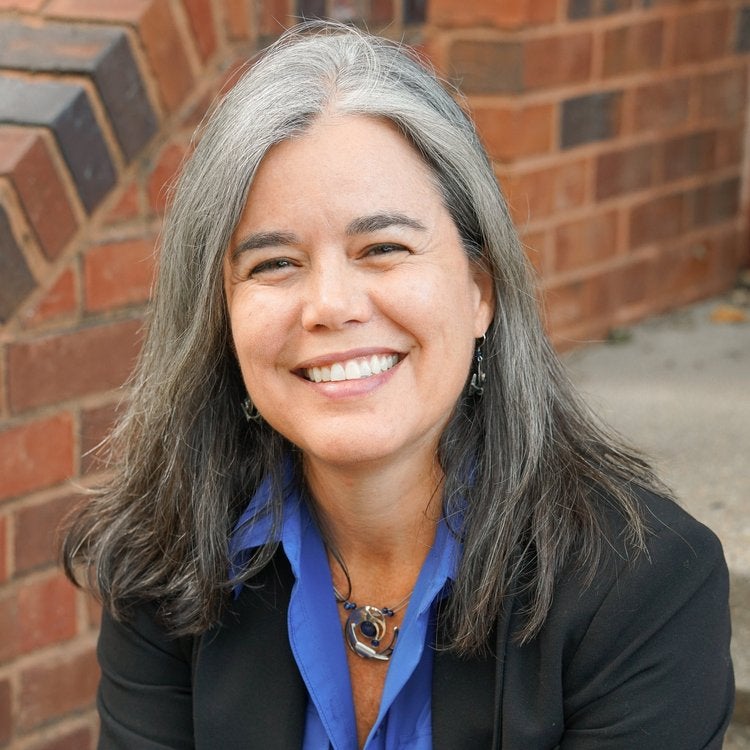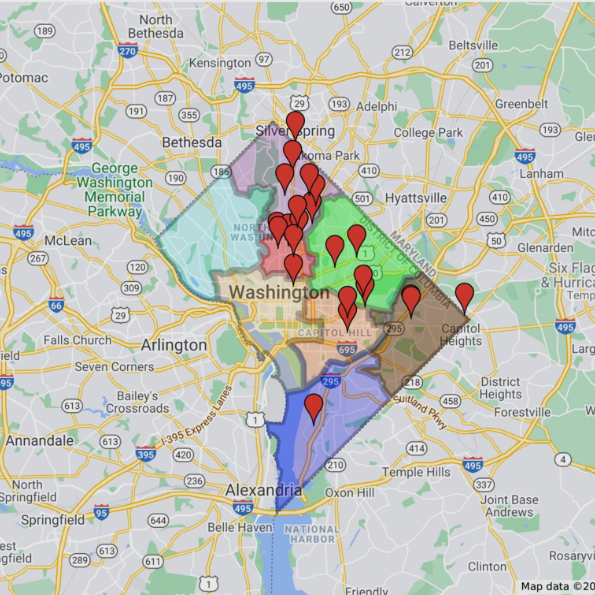Building Community Connections Through Participatory Research at Local Laundromats
(September 23, 2022) — While washing her clothes at a local laundromat as a graduate student, Roxanne Mirabal-Beltran, PhD, RN, realized she was surrounded by Spanish-speaking women and children — the population that she wanted to work with. “I sat there and said, this is the community that I want to reach,” she said. “They’re all right here. So I filed that idea for later.”

As an assistant professor of professional nursing practice at Georgetown University School of Nursing, Mirabal-Beltran is dedicated to community-based participatory research, one of the reasons she was awarded a KL2 Scholars Award from Georgetown-Howard Universities Center for Clinical and Translational Science in 2021.
“In partnering with the community, you don’t come in as the expert telling them what they need,” she said. “You come in as someone with a certain skill set to lend to meet the needs that they have identified.”
“Being a Latina, it is very important to me to be a researcher out in the community,” Mirabal-Beltran added. “Connecting with the community allows me to get in touch with my own self.”
Reaching Those Who Are Hard to Reach
In March, Mirabal-Beltran was awarded a Sigma Foundation for Nursing/Doris Bloch Research Award for her proposal “Building a Culture of Health Through a Laundromat-Based Health Educational Intervention Focused on Women’s Fertility, Pregnancy, and Health-Seeking Behaviors.”
Researchers frequently turn to churches, barbershops and hair salons when considering venues for informal health education. Laundromats could be a part of that list, Mirabal-Beltran said.
Unlike churches, barbershops and salons, which were closed during the beginning of the pandemic, laundromats were deemed essential services and stayed open.
“There’s potential there to reach even very hard-to-reach communities who don’t have a formal address to their name or a home with a washer or dryer,” she said. “They still need to wash their clothes.”
Identifying and Addressing Community Needs
As part of her research, Mirabal-Beltran convened a community advisory board (CAB) that included local laundromat owners. Though she initially intended to focus on one part of the District, the CAB encouraged Mirabal-Beltran to include neighborhoods that might face similar barriers.

By expanding the scope of her research, Mirabal-Beltran found that there weren’t any major differences between those surveyed for her needs assessment. “In general, we discovered that women were very open to engaging with researchers and some sort of intervention in the laundromats,” she said.
People at four laundromats in different parts of DC were asked about their knowledge of reproductive health. Several survey respondents were unclear about the importance of folic acid and when to seek prenatal care. In response to the survey’s findings, Mirabal-Beltran plans to develop an intervention created with input from their research, the CAB and health care providers in the community.
Getting Undergraduates Involved
Engaging undergraduate students in her research through the Georgetown University Undergraduate Research Opportunities Program has been a critical component of Mirabal-Beltran’s work.
“I think that’s one of the greatest things to see, undergraduate students as early as their second year roll out surveys and journey into D.C., really engaging with the city where they’re getting their education,” she said.
While not a requirement for participation, several of the undergraduate researchers are interested in careers in medicine, nursing or public health.
“They’re going into fields where having cultural humility becomes essential and it’s not something that can just be tagged on to a class,” Mirabal-Beltran said. “The way I’m doing research allows them to really be immersed in it.”
Kate Monogue-Rines (N’22) contributed to Mirabal-Beltran’s research for two years as an undergraduate student. In her second year, she served as a research assistant, was second author on a manuscript and presented at a conference.
“It completely transformed my idea of what a nurse can do and what a nurse can add,” she said. “It has made my nursing practice so much different and so much better.”
For Nandi Dube (C’24), a psychology and premed major, contributing to Mirabal-Beltran’s research strengthened her interest in pursuing health care as a career.
“Coming in with reverence and emphasizing the fact that we want to help but we don’t want to step on anyone’s toes is a really important lesson that I’m going to take with me,” she said. “I couldn’t recommend this experience enough.”
Kat Zambon
GUMC Communications
Featured Image photo credit: Marshall Williams on Unsplash

